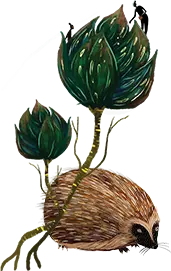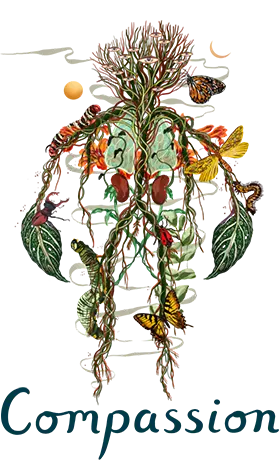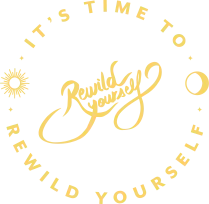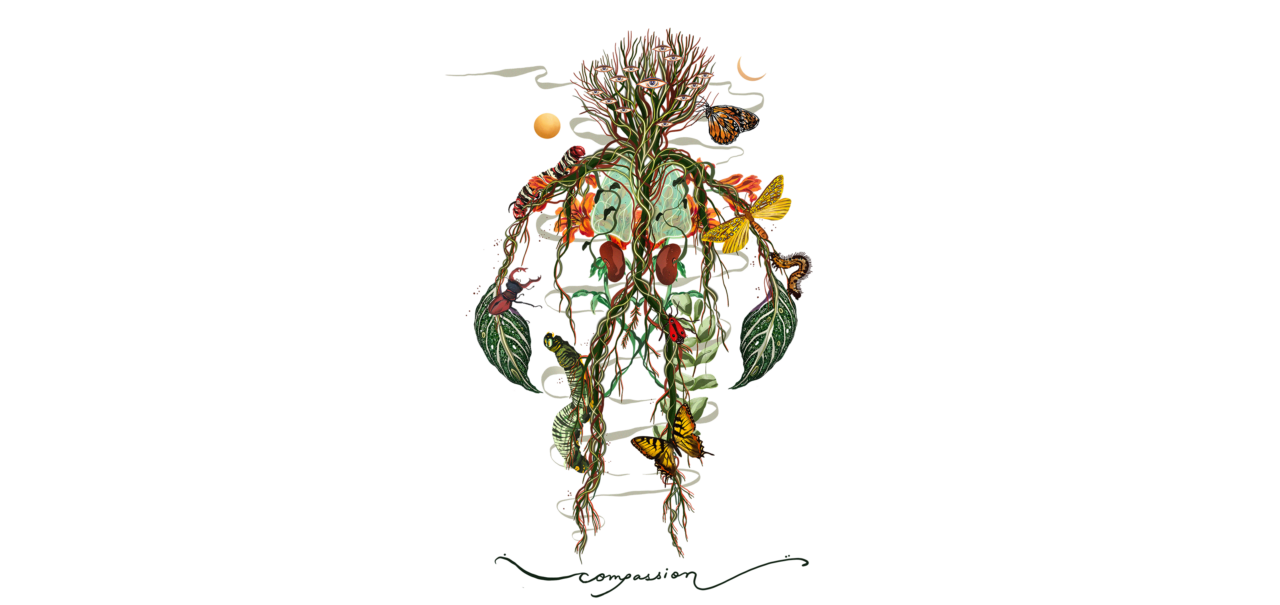
VIDEO PODCAST: Compassion
As part of our ‘It’s Time to ReWild Yourself’ campaign, we invite a series of experts for a chat.
This month, to discuss the Compassion pathway to Nature Connection, we were joined by two environmentalists, both experts at engaging young and old with Nature and the land: Hannibal Rhoades (Action for Conservation) and Mark Stead (WWT).
We have often quoted a lot of facts and figures about the value of connecting with Nature, but what was particularly enjoyable about this conversation was to hear directly from Hal and Mark’s experience on the ground, especially the positive impact observed amongst children and young people.
However, we also had a thoughtful discussion around the compassion pathway and it was interesting to hear Hal and Mark’s thoughts on how we can foster empathy, compassion and action in people. We explored the value of more-than-human personhood, barriers that exist to building compassion, and the importance of good stories, messengers and role models. Enjoy!
We’ve included links to some of the resources, books etc mentioned in the podcast below:
Viewing from your phone?
Hit this link to view direct on YouTube.
Resources and Recommendations
Hal’s book recommendation – The Carrier Bag Theory of Fiction, by Ursula K. Le Guin
Mark’s book recommendation – Braiding Sweetgrass, by Robin Wall Kimmerer
More info on the Penpont Intergenerational Project
More info on Generation Wild
Mark Stead
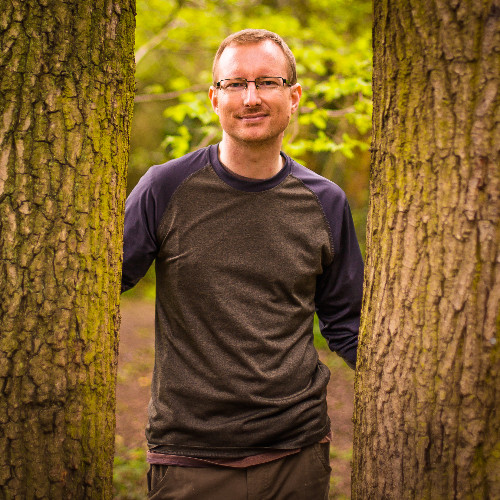
Mark Stead is the National Learning Manager at the WWT, overseeing the learning teams of 10 wetland centres across the UK. As a graduate geography teacher, Mark had 11 years’ experience of primary and secondary schools and of training teachers and pupils across 9 European countries before joining WWT. Mark is dedicated to environmental education, completing his MSc whilst working full time. He is a dedicated environmentalist, not just at WWT, but as a volunteer at his local nature reserve, as a volunteer Eco-schools assessor and, running Forest School sessions for disadvantaged children.
Mark also helped change the focus of the WWT learning programme from one based largely on knowledge acquisition to one that also promotes a deeper emotional connection to nature. The wetlands and their wildlife themselves have become the main learning resource. The Generation Wild project has been a huge part of this shift.
Hal Rhoades
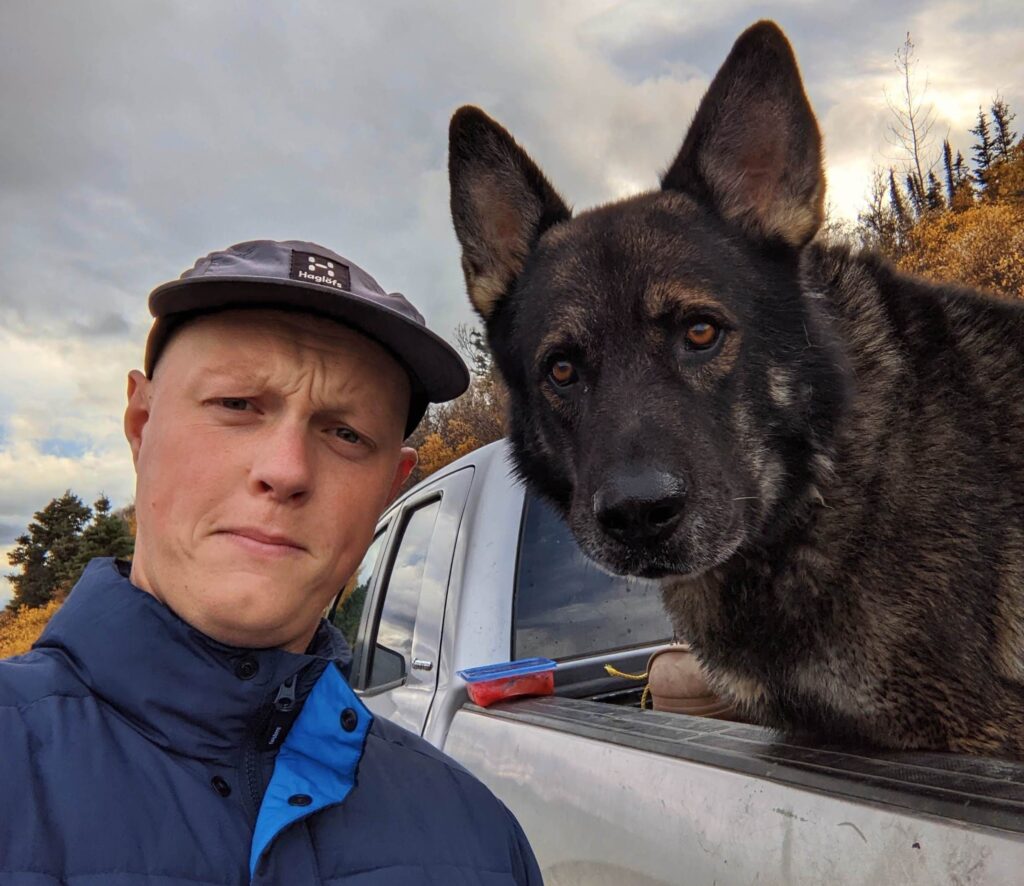
Hal Rhoades is an anthropologist, environmentalist and writer. He lives in the Malvern Hills and works for Action for Conservation on the Penpont Project in the Bannau Brycheiniog. The Penpont Project is the largest intergenerational nature restoration project of its kind in an effort to reverse devastating ecological breakdown and create a global gold standard for youth-led environmental action.



